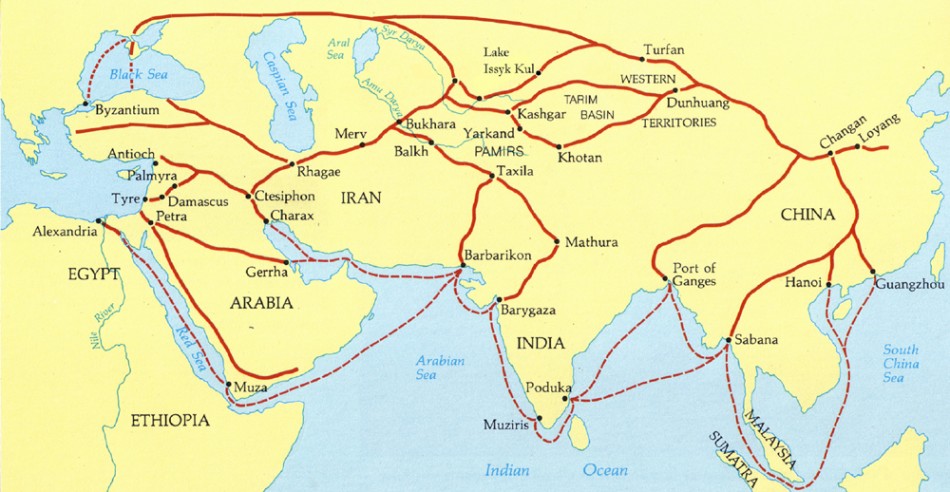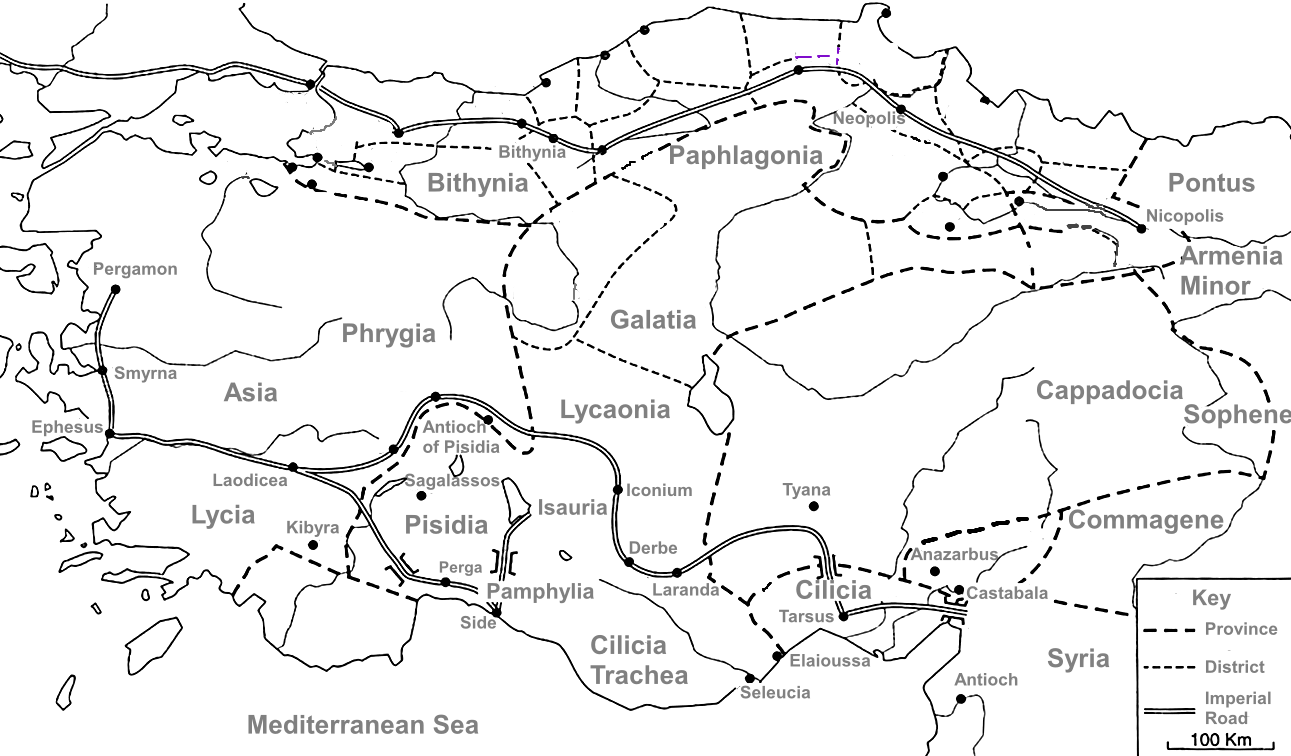Print
Author's Bias | Interpretation: conservative | Inclination: promise | Seminary: none
Seleucus I Nicator (358-281 B.C.) was a Macedonian Greek hypaspists commander under Alexander the Great. Upon Alexander's death,
Seleucus became one of the rival generals who contended for the empire (Diadochi of Alexander the Great) and ultimately won and
established the Seleucid Empire. In light of biblical history, the Seleucid Empire was part of Nebuchadnezzar's dream of a "third
kingdom in bronze" (Dan 2:39), and Daniel's "ram" of his second vision during the third
year of reign by Nebuchadnezzar's grandson Belshazzar (Dan 8:21). Daniel's visions, an
elaboration of Nebuchadnezzar's dream, prophesized of four kingdoms, beginning with the Nebuchadnezzar's Neo-Babylonian Empire, that
would precede the everlasting Kingdom of God.
In Daniel's dream during the first year of Belshazzar's reign (Dan 7:6),
the third beast that came from the sea looked "like a leopard" and had "four wings of a bird" and "four heads." With the hindsight of
history, Alexander the Great conquered the Persian Empire in a mere three years, and the "four heads" and "four wings of a bird" appear
to symbolize the four main generals of Alexander the Great's army: Ptolemy, Seleucus, Lysimachus, and Cassander who would later carve up
Alexander's empire when he dies.
In Daniel's vision during the third year of Belshazzar's reign, the male goat is identified as the "king of
Greece" and the "large horn" as the "first king" Alexander the Great (Dan 8:21).
"The broken horn and the four horns that arose in its place represent four kingdoms which will arise from his nation"
allude to the four general-emperors that divided Alexander the Great's empire (Dan 8:22).
This imagery is consistent with Daniel's earlier vision of a leopard like beast with four heads and four wings
(Dan 7:6).
Introduced for the first time, the angel Gabriel reveals that "a king will arise, insolent and skilled in intrigue"
(Dan 8:23), "he will destroy" (Dan 8:24-25),
"he will magnify himself in his heart… even oppose the Prince of princes" (Dan 8:25).
This evil king is elaborated upon roughly 10 years later when Daniel has another vision during the first year of
Darius the Mede's reign (Dan 11). In light of details found in
Daniel 11:21-35 and with a view of historical events, the identity of this evil king is
believed to be Antiochus IV Epiphanes who arose from the Seleucid Empire.
Although he was not next in line for the throne, Antiochus IV Epiphanes seized the throne through murder and intrigue.
Of all the Seleucid rulers, Antiochus IV Epiphanes does fit the description as the "despicable person"
(Dan 11:21), because of his brutal persecution of the Jews, oppression of Judea, and
desecration of the Temple.
Antiochus IV Epiphanes would perish from illness and not by "human agency" (Dan 8:25).
With the empire in his control, Seleucus founded and fortified strategically located cities, and in honor of his father Antiochus,
named several cities "Antiocheia." Roughly 300 years later, the New Testament would mention two cities called Antioch: Antioch of Syria
and Antioch of Pisidia, and the Christian churches of both cities would be associated with a ministry towards Gentiles.
Antioch of Syria
Located approximately 300 miles north of Jerusalem and on the eastern side of the Orontes River, Antioch of Syria was considered the
third most important city after Rome and Alexandria, because of its position in the Silk Road's east - west trade route and as part of
the Persian Royal Road communications route. After resettling a number of Jews, Seleucus I Nicator granted them the rights of Greek
citizenship. Conquering the city in 64 B.C., the Romans improved Antioch's roads and security, which increased the area's prosperity.

The Silk Road
After the Ascension of Jesus Christ (Acts 1:6-11), the gospel is introduced
spectacularly on Pentecost to Jews "from every nation under heaven" (Acts 2:1-11),
when the baptism of the Holy Spirit occurs. With the word of God boldly being shared (Acts 4:31),
the earliest mention of Antioch occurs when seven men were selected to serve the widows and one was from Antioch of Syria
(Acts 6:1-6).
The announcement found approval with the whole congregation; and they chose Stephen, a man full of faith and
of the Holy Spirit, and Philip, Prochorus, Nicanor, Timon, Parmenas, and Nicolas, a proselyte from Antioch.
(Acts 6:5)
With the martyrdom of Stephen and the ensuing persecution by Jewish religious authorities, Believers fled Jerusalem and gathered in
Phoenicia, Cyprus, and Antioch (Acts 11:19). The growth of the Antioch church (of
Syria) was notable (Acts 11:19-30) and the disciples here were first called Christians
(Acts 11:26).
Antioch of Syria was a strong teaching church, and the apostle Paul started his missionary life from there:
Now there were prophets and teachers at Antioch, in the church that was there: Barnabas, Simeon who was
called Niger, Lucius of Cyrene, Manaen who had been brought up with Herod the tetrarch, and Saul. While they were serving the Lord and
fasting, the Holy Spirit said, "Set Barnabas and Saul apart for Me for the work to which I have called them." Then, when they had fasted,
prayed, and laid their hands on them, they sent them away. (Acts 11:1-3)
The apostle Paul considered Antioch of Syria his home church (Acts 15:35-36;
18:22-23), and it was here that the earliest theological conflicts were recorded
between Jewish customs and Christianity. The divisive issue of circumcision and keeping certain aspects of the Law of Moses was referred
to the church of Jerusalem for resolution (Acts 14:24 -
15:35).
Then it seemed good to the apostles and the elders, with the whole church, to choose men from among them to send to
Antioch with Paul and Barnabas: Judas who was called Barsabbas, and Silas, leading men among the brothers, and they sent this
letter with them:
"The apostles and the brothers who are elders, to the brothers and sisters in
Antioch, Syria, and Cilicia who are from the Gentiles: Greetings.
Since we have heard
that some of our number to whom we gave no instruction have confused you by their teaching, upsetting your souls, it seemed good to us,
having become of one mind, to select men to send to you with our beloved Barnabas and Paul, men who have risked their lives for the name
of our Lord Jesus Christ. Therefore, we have sent Judas and Silas, who themselves will also report the same things by word of mouth. For
it seemed good to the Holy Spirit and to us to lay upon you no greater burden than these essentials: that you abstain from things
sacrificed to idols, from blood, from things strangled, and from acts of sexual immorality; if you keep yourselves free from such things,
you will do well. Farewell."
So when they were sent away, they went down to Antioch; and after gathering the
congregation together, they delivered the letter. When they had read it, they rejoiced because of its encouragement. Judas and Silas,
also being prophets themselves, encouraged and strengthened the brothers and sisters with a lengthy message. After they had spent time
there, they were sent away from the brothers and sisters in peace to those who had sent them out. But Paul and Barnabas stayed in
Antioch, teaching and preaching the word of the Lord, with many others also. (Acts 15:22-35)
Antioch of Pisidia
Located in the Anatolian region of Asia Minor on the mountainous border of Pisidia and Phrygia, this fortified city served as a
military base against adverse ethnic groups. After Roman conquest, construction of the Via Sebaste, Roman Imperial Road, was initiated
in 6 B.C., and connected Antioch with the Mediterranean coast (via Perga) and the rest of the Roman empire. In addition to trade, the
road served as a quick response military transport and imperial communications route, which made the city an important city in Asia Minor.

Roman Imperial Road
Of the New Testament, Antioch of Pisidia is notable for the apostle Paul's longest sermon presenting the gospel, from the fulfillment
of Messianic prophecies to atonement / resurrection, on the Sabbath in a Jewish synagogue during his first missionary journey
(Acts 13:14-41).
The next day, the apostle Paul spoke to most of the Gentile inhabitants of the entire city who received his gospel
message with great joy (Acts 13:44-49).
Paul would later refer to the persecution and expulsion by the Pisidian Jews
(Act 13:50-51; 14:19-23) in his
letter to Timothy:
Now you followed my teaching, conduct, purpose, faith, patience, love, perseverance, persecutions, and
sufferings, such as happened to me at Antioch, at Iconium, and at Lystra; what persecutions I endured, and out of them all the
Lord rescued me! Indeed, all who want to live in a godly way in Christ Jesus will be persecuted. But evil people and impostors will
proceed from bad to worse, deceiving and being deceived. (2 Tim 3:10-13)
Some scholars believe that the epistle to the Galatians was intended for Antioch of Pisidia and nearby churches on the Roman Imperial
Road (i.e. Lystra and Iconium) which were part of the Roman province of Galatia.
"Let us seek friends that will stir up our prayers, our Bible reading, our use of time, and our salvation."
J. C. Ryle
Copyright ©
2021
Helpmewithbiblestudy.org. All rights to this material are reserved. We encourage you to print the material for personal and
non-profit use or link to this site. If you find this article to be a blessing, please share the link so that it may rise in
search engine rankings.